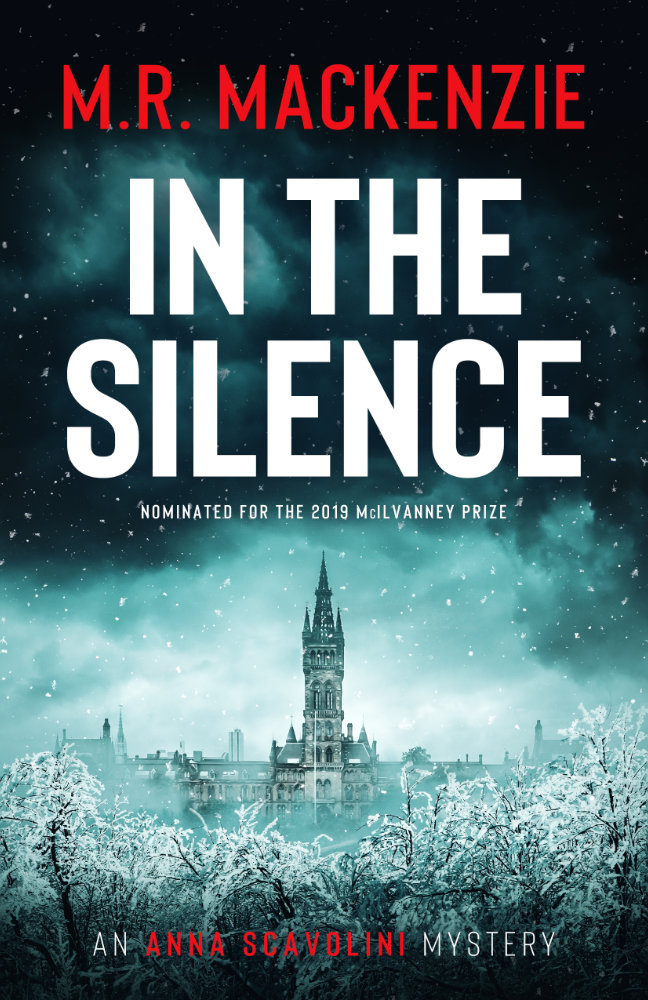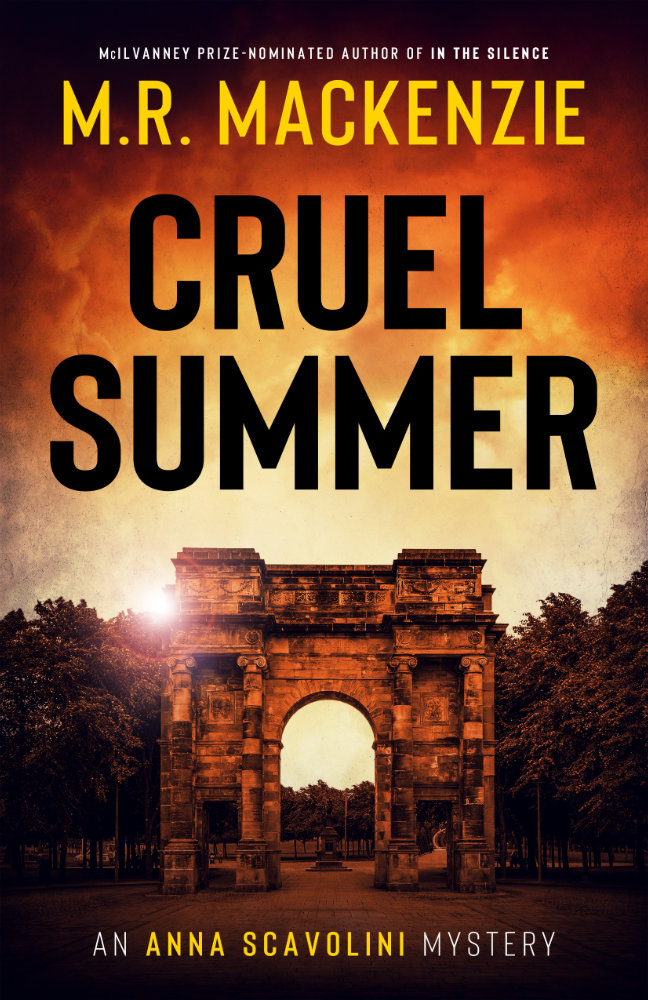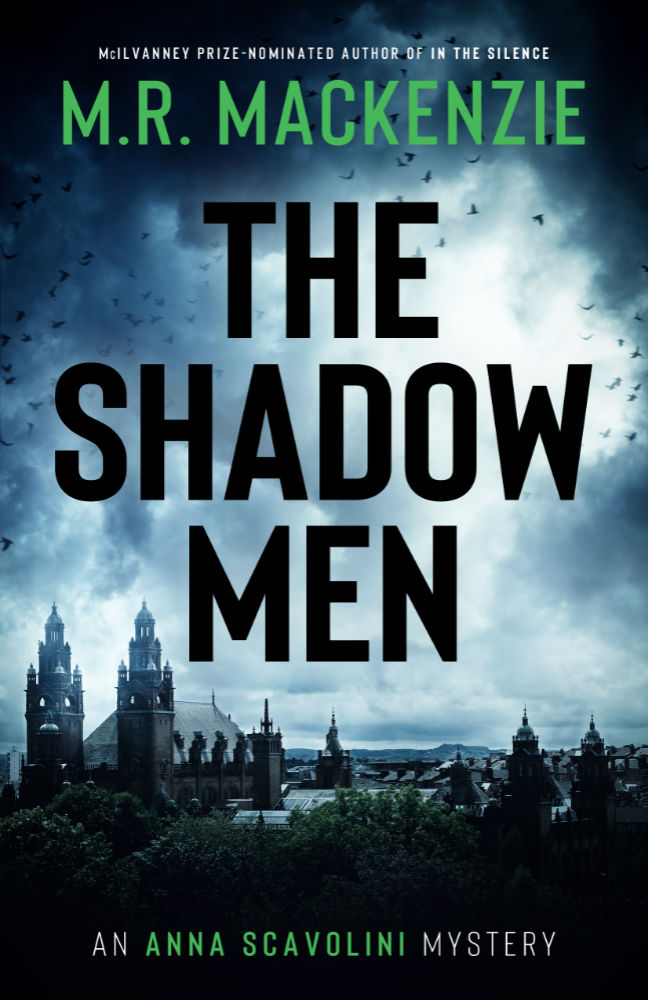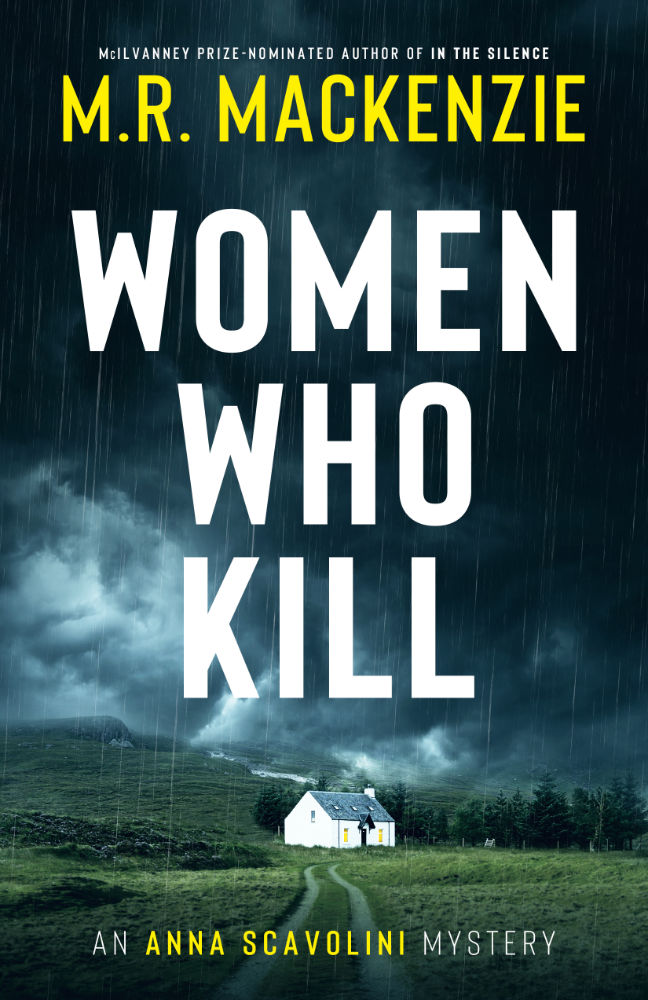Character Biography
Anna Scavolini
Driven, fiercely opinionated, and 5 ft 2 on a good day, criminology lecturer Anna Scavolini is, perhaps, an unlikely heroine. Read on to discover more of her backstory in this exclusive character dossier.

Anna Rosa Scavolini was born in Glasgow on 5th May 1981 to Francesco and Leah, children of Jewish immigrants from Italy and Germany respectively. She had a closer relationship with her father than with her mother, though from early on was often at odds with both of them, in respect of everything from politics to religion to what should be considered appropriate reading material for an eleven-year-old.
Growing up, she was not just an only child but also a lonely child, though this was at least partially self-inflicted as she invariably preferred the company of adults – and, failing that, solitude – to that of her peers. She read voraciously from an early age, often disappearing into books for hours at a time. Many of the firmly held beliefs she would carry forward into adulthood were honed through her devouring of texts on philosophy and sociology at an age when most children her age were still reading Enid Blyton.
She grew up in Kelvinside, an upmarket district in Glasgow’s West End, in a large three-storey villa on Cleveden Road. She attended Kelvindale Primary School (1986–1993), then Willow Bank Academy (1993–1999), a fee-paying secondary school in the West End, near Woodlands Hill. It was on her first day at the latter that she met Zoe Callahan, with whom she formed an immediate and lasting friendship.
On the face of it, they couldn’t have been more different – Anna bookish and from a privileged (if not quite upper-class) background, Zoe a coarse-mouthed working-class kid from Ruchill who had zero intention of allowing the private education system to sand off her rough edges. But it was their very differences that drew them to one another. Anna liked that Zoe had no airs and graces, while Zoe liked that Anna, unlike the other pupils, didn’t look down on her because of her background. All throughout secondary school, they practically lived out of each other’s pockets, spending so much time together that the inevitable rumours began to spread about their being an item. In reality, neither of them were that way inclined towards one another, though it was certainly true that the bonds of their friendship ran far deeper than any of their dalliances with the opposite sex (considerably more numerous in Zoe’s case than Anna’s).
As she progressed through school, Anna’s growing interest in the criminal justice system, particularly its impact on women on both sides of the law, led her to increasingly specialise in social science subjects. Planning to study sociology at university, she devoted herself wholesale to her studies, though she still found time to blow off steam with Zoe on evenings and at weekends. It was on one of those occasions that an event took place which would change her forever.
In the spring of 1998, shortly before her fifth-year exams, Anna, at Zoe’s insistence, accompanied her to a house party held by a friend of a friend. There, she got talking to a university student, who flattered her ego and plied her with alcohol before initiating sex with her despite her objections. The experience was to have a lasting impact on her, leaving her with serious trust issues and an acute awareness of her vulnerability as a woman in a male-dominated society. Already a passionate believer in women’s rights, she resolved to pursue a career as a criminologist, specialising in violence against women and other marginalised groups, and to advocate for reforming the legal system’s handling of rape and its victims.
When the time came to go to university, Anna knew one thing for certain: she didn’t want to remain in Scotland. After considering the various options, she narrowed her choices down to either Italy or Germany. Because of her grandparents’ backgrounds, she was fluent in both language, with the ability to pass more or less as a native speaker in the former – though many have remarked on the “hilarious” Kelvinsider’s twang of her German, leaving her feeling self-conscious about speaking. She had a large extended family on her father’s side (there were fewer surviving relatives on her mother’s), and had spent a considerable amount of time in Italy during summer holidays as a child – her paternal grandparents having moved back there in their twilight years to renovate a former farmhouse in Tuscany. In the end, Italy won out, and, in the autumn of 1999, she bade farewell to Glasgow to begin her undergraduate studies at the Sapienza Università di Roma.
Ten years passed. Anna remained in Rome, passing her undergraduate degree with flying colours and going on to complete a PhD in criminology. In the intervening years, she had a string of relationships, mostly with men who were at least slightly older than her. Some were brief; others lasted longer. All, however, inevitably ended in acrimony thanks to her penchant for self-sabotage. In late 2005, her father was diagnosed with oesophageal cancer and died early the following year following a brief and sudden decline. Anna, who had delayed returning to Glasgow on the assumption that she had plenty of time, was racked by guilt. Her mother, meanwhile, unable to face living in the same house she and her husband had shared for the better part of thirty years, sold up and relocated to Saint-Tropez for a fresh start. Anna’s failure to visit her father before his death deepened the already considerable rift between her and her mother, who believed Anna had put her studies ahead of her family, and communication between them all but dried up.
Anna, too, had had her own health problems to contend with. In 2002, during the final year of her undergraduate degree, she was diagnosed with type one bipolar disorder. In retrospect, it helped make sense of the extreme emotional ups and downs she’d experienced throughout her late teens and early twenties. A prescription for lithium helped get her back on a more or less even keel, though her newfound awareness of the fragility of her mental health left her feeling increasingly vulnerable, leading her to put up even greater barriers against other people and causing the collapse of a year-long relationship with a fellow sociology student, Giulio Nardi.
As 2009 rolled on, Anna grew increasingly restless. From the outside, it looked like she had everything going for her. Her research was published widely in respected international journals, she’d secured herself a tenured position in the Department of Criminology at the Sapienza, and she was living in one of the oldest, most beautiful cities in the world. Inside, however, she felt an increasing sense of dissatisfaction with the life she’d carved out for herself. While she would never have admitted it, she felt isolated and lonely, with a barely acknowledged yearning for the life she’d left behind in Glasgow a decade ago. Most of all, however, she missed Zoe.
Over the years, the pair of them had increasingly fallen out of touch, the distance between them – coupled with Anna’s laser-like focus on her studies – proving too great a hurdle to overcome. It was with considerable trepidation, therefore, that Anna picked up the phone when the caller ID lit up with Zoe’s old number one night in November. At first, she assumed it could only be bad news if Zoe was calling her out of the blue like this after so many years of non-communication. As she listened to Zoe’s familiar stream of verbal diarrhoea, however, as beautifully uncensored and unrefined as it had been ten years ago, she realised that this was nothing more than Zoe – seemingly bearing no ill will towards her for cutting off all communication with her – choosing now to re-extend the hand of friendship. As the night wore on, she found herself telling Zoe all about her mental health problems, her isolation, the various stresses of work…
By the end of the phone call, it was decided. Anna would come back to Glasgow the following month, in time for Zoe’s birthday and Christmas, and she’d stay for as long as she liked, no strings attached. And so, a few weeks later, on a bitterly cold, snow-swept December night, Anna found herself alighting on the platform of Glasgow’s Queen Street Station, back in the city she once called home for the first time in more than ten years, blissfully unaware of the horrors in which she was about to find herself mixed up…
Further Reading
Discover how Anna’s story develops with these plot summaries for the first two novels in the series, In the Silence and Cruel Summer.



